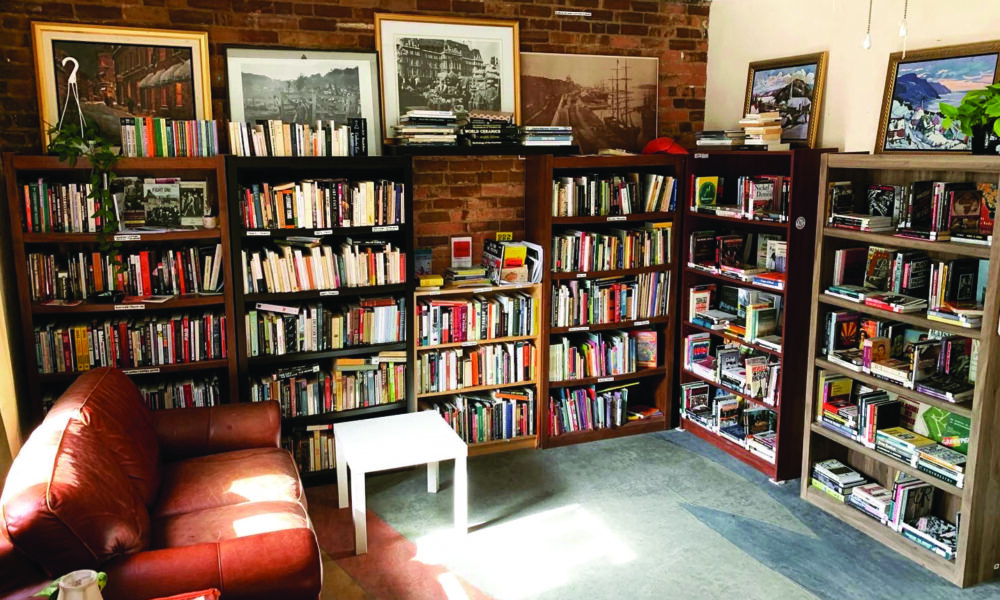The Quebec Public Interest Research Group at McGill (QPIRG-McGill) opened registration for its newly-launched Free Textbook Loan Program on Sept. 11. The program, largely funded by the Arts Undergraduate Society’s (AUS) Arts Undergraduate Improvement Fund (AUIF), allows students to borrow textbooks donated by other students for free.
QPIRG-McGill is a student-run initiative working toward social and environmental justice through advocacy, research, and education. The program, based in the Arts Lounge, works by having students who wish to donate fill out a Google Form with information about the books they are donating. QPIRG-McGill ensures that the textbooks students donate are required readings for McGill classes by cross-referencing with course syllabi and then offers five dollars in cash per title. Students may donate physically on-site, but can only receive compensation by using the Google Form.
Borrowing is on a first-come-first-served basis with priority given to students in the Faculty of Arts. Prospective borrowers fill out a separate Google Form which is reviewed chronologically by QPIRG-McGill. Once a student is approved to borrow a textbook, they are allowed to keep it until the end of exam season, after which it must be returned to the program.
Nhuan Dong, QPIRG-McGill’s Resource Centre Coordinator and lead on the free textbook project, told The Tribune that he hopes to broaden the program in coming semesters to make this service accessible to all students.
“My larger objective is to make this a universal project at McGill,” Dong said. “And hopefully, after this semester, we will have some data to prove that this is effective, and this is helping students. Then we can collaborate with other faculties, other student unions and other faculties.”
QPIRG-McGill conceived the program as a way to help ease the burden of education costs for students. Chloe Sproule, U2 Arts, donated to the program and wrote to The Tribune about why she thinks that this is an important initiative.
“It’s a common refrain to wail about the price of course books, and yet I’m continually surprised by the amount of people who just accept the financial blow,” Sproule wrote. “Simply, I think it is ridiculous that our tuition fees do not extend to even electronic copies of essential course materials. To [shell] out hundreds of dollars for a book without which you cannot pass a class is something that has stopped many people I know from enrolling in a given course.”
The AUIF is one of multiple financial aid opportunities offered by the AUS for Arts students and student associations. In an interview with The Tribune, Julia Widing*, AUS’s VP Finance, expressed that while she was glad that the AUS could shoulder much of the program’s cost, the demand for this service speaks to a lack of support from McGill.
“It’s a bit of a double-edged sword because I can see how it can be flipped, where it’s great [that] we represent ourselves, and we’re giving back to our student community,” Widing said. “But at the same time, why do we have to help ourselves and fund ourselves when the institution is right there?”
Sproule also spoke to the concern about the financial burden that students face when having to buy textbooks in addition to tuition fees and costs of living.
“I could whine about the original promise of the University as a democratic institution, a fountain of knowledge and (often) refuge from poverty and persecution, but what’s reassuring is that students are finding their way around it,” Sproule wrote.
“The QPIRG Loan program is a fantastic idea—to house those books that are in high demand in introductory classes, read once (or not at all), and left to collect dust on a shelf. It’s reassuring that student organizations are taking initiatives to, officially or not, help students cope with some of the more egregious demands our University makes of us.”
*Widing’s opinions do not necessarily reflect that of AUS










